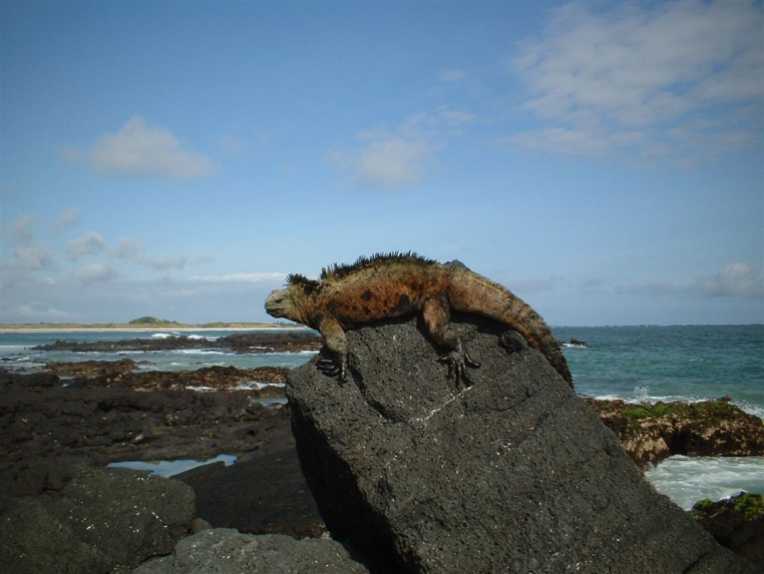The Galapagos Islands are known around the planet as a symbol of the wonders of the natural world. They are protected by national law and global environmental treaties; the Galapagos is a UNESCO World Heritage site, a Ramsar site and a Biosphere Reserve.
The Galapagos is made up of 18 islands and about 50 islets and within the National Park, which makes up 97% of the archipelago, indigenous fishing is allowed. However, being nearly 1000km from Ecuador means that the islands are very susceptible to illegal poaching and smuggling of marine species. In over 12 years of legislation being in place, nobody has ever been convicted for crimes against the environment.
The islands have suffered from a history of overexploitation in its marine waters. Now the human population on the Galapagos has approximately doubled in the last 10 years, all the associated problems of society are descending on the islands.
Transportation from the mainland has introduced rats and insects that are damaging the fragile ecosystem, with endemic birds and marine iguanas under increasing stress. Increasing boat travel between the islands has meant more sea turtles are now being run over.
Recognising the vital importance of protecting the Galapagos, the Sea Shepherd has kept a visible presence in the islands since 2000; patrolling the waters for illegal fishing and bill fishing, shark hunting, poaching of marine species and shark finning. The Sea Shepherd explains that ''on any given day we estimate that anywhere between 10 and 100 miles of longline are set inside the Galapagos Marine Reserve''.
In addition, there is sea cucumber poaching, catching of sea horses and taking of sea lion penises and testicles. Much of the poaching and illegal fishing takes place at night, and by the time morning comes the boats have moved outside of the Marine Park boundaries.
The Galapagos National Park Service (GNPS) is responsible for patrolling and monitoring the islands, but they are poorly funded and have a small fleet to chase down the criminals. They are struggling to control and stop the poaching. The administrative penalties that the criminals receive are very low, especially when compared with the going rates for shark fins and other poached items, which means the risk of being caught is often considered worth it.
So, despite all the national and international regulations and commercial fishing bans, there are ongoing violations by local Ecuadorian fishing boats, foreign vessels and independent operators. According to the Sea Shepherd, "the Galapagos is our line in the sand. If humanity cannot protect such a unique and diverse ecosystem, we will not be able to protect any ecosystem".
Legislation in Ecuador now allows the opportunity to create special judiciaries to address crimes against nature. This is a very unique judicial body as it recognises the rights of nature. The Sea Shepherd Conservation Society, along with World Wildlife Fund, Conservation International and GNPS, are promoting the need to create a Specialised Judiciary on Rights for Nature in the Galapagos. If it goes ahead, this will be a world first for protecting nature against ecological criminals.
No longer would small administrative penalties be charged to poachers caught red-handed, instead they would face criminal prosecution as well as possible prison sentences. It is hoped that this would provide a much stronger deterrent to the poachers and illegal fishermen. The final decision is now resting with the Judicial Council of Ecuador.










